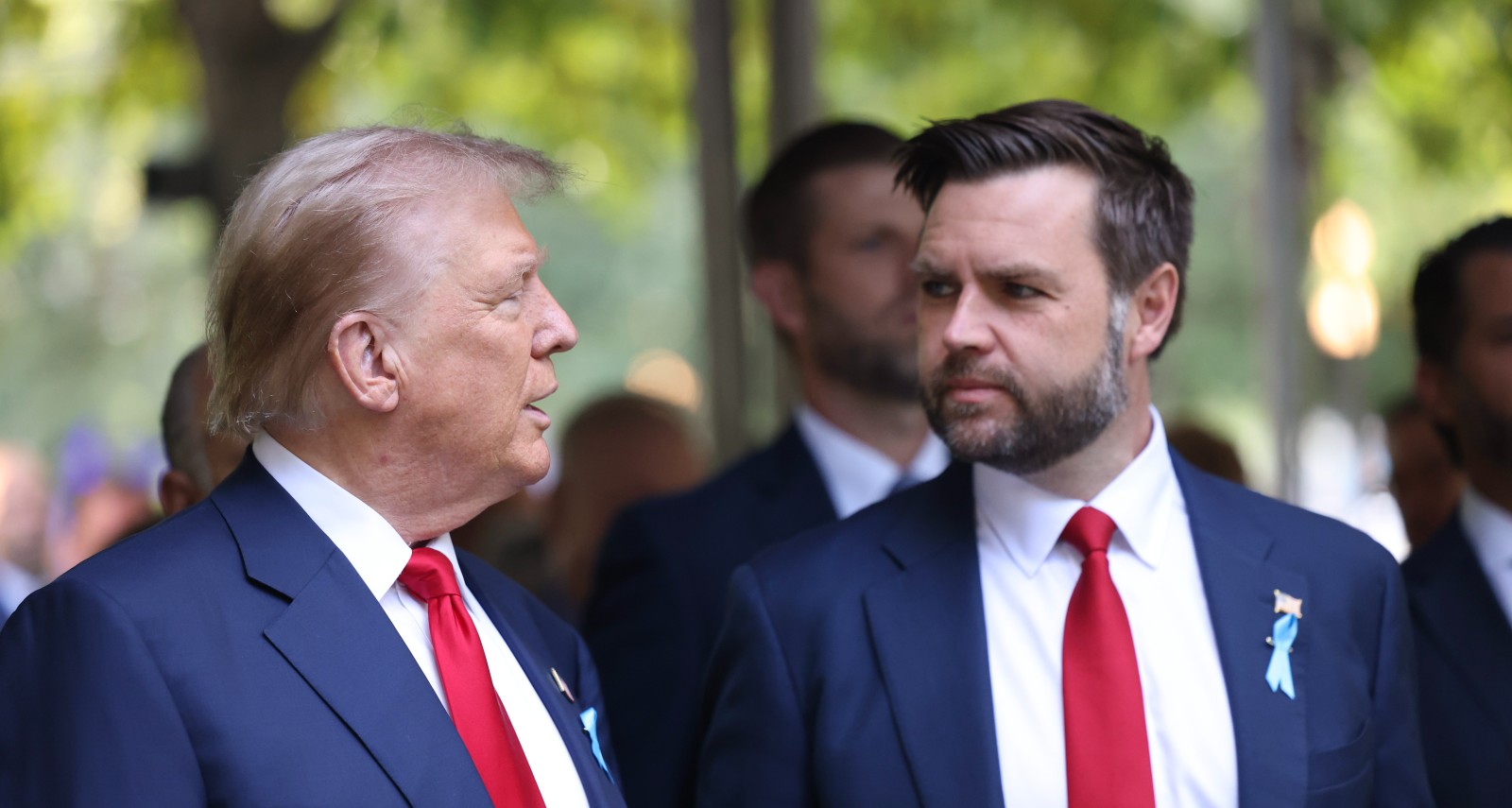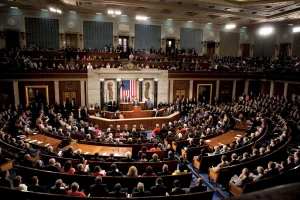Speculation over the 2028 Republican presidential field is accelerating, and Sen. Ted Cruz (R-Texas) has now placed himself squarely in the conversation. During a Monday morning interview, the two-term senator declined to rule out a future presidential bid — a move that immediately fueled political chatter and sent ripples through a GOP already divided over its post-Trump identity.
Cruz insisted his focus remains on representing Texans and advancing conservative policy victories, but his recent behavior — combined with emerging reporting from Axios — suggests the groundwork for a potential campaign is quietly taking shape. And notably, his posture is creating tension with key figures in the party’s populist wing, including Vice President JD Vance.
Cruz Leaves the Door Open: “The Wins We Are Getting Are Historic”
Pressed during an appearance on Fox News’ The Faulkner Focus, Cruz didn’t shut down questions about 2028. Instead, he pointed to what he termed “historic” legislative accomplishments, including his collaboration earlier this year with President Donald Trump on tax policy and border security.
“Reporters are going to write headlines that get clicks and get eyeballs,” Cruz said. “I got a job — it’s representing 31 million Texans. And I’ll tell you right now, the wins we are getting are historic.”
It was a carefully calibrated answer: not a declaration of intent, but not a denial either. And those who follow Cruz’s political instincts know he rarely leaves anything to chance.
WATCH:
Axios: Cruz Positioning as the GOP’s Foreign-Policy Hawk
According to Axios, Cruz has been strategically positioning himself as a counterweight to the party’s increasingly inward-focused populist faction. That wing, championed by JD Vance and several other Trump-aligned figures, has called for sharply reduced U.S. involvement overseas — especially in Ukraine and the Middle East — in favor of redirecting resources to domestic issues.
Cruz, by contrast, is redefining himself as the party’s foreign-policy adult in the room, emphasizing global stability, strong alliances, and America’s obligation to confront international threats.
This ideological split is no small matter. The GOP is undergoing one of its most significant foreign-policy recalibrations in decades, and Cruz is staking his claim in the middle of that shift.
The Vance Divide: Two Visions for the Post-Trump GOP
JD Vance has emerged as one of the most recognizable leaders of the populist right, particularly after becoming Trump’s running mate. He has championed a restrained foreign policy, arguing that America should refocus its attention and resources on domestic challenges such as manufacturing, energy, and border security.
Vance’s skepticism toward foreign involvement reflects the sentiment of a large portion of the MAGA base — a group Cruz once courted aggressively during his own 2016 presidential run.
The split between Vance and Cruz now represents more than a policy disagreement. It embodies two competing visions for what the Republican Party should become after Trump leaves the stage:
-
Vance’s Vision: America First, non-interventionist, focused almost exclusively on domestic fights.
-
Cruz’s Vision: America as a global force, actively engaged abroad to ensure national security and international stability.
It is not yet open warfare between the camps — but political insiders are watching closely.
Cruz’s Global Focus: Spotlight on Christian Persecution in Nigeria
Cruz has ramped up his international messaging in recent months, regularly highlighting global religious persecution — particularly against Christians in Nigeria.
On Monday, he again pivoted away from 2028 questions by emphasizing his recent White House discussions on the issue.
“It’s why my focus right now is on the Christians in Nigeria,” he said. “I was at the White House last week with the president, thanking him for standing up for the Christians in Nigeria.”
Cruz argued that under the Biden administration, the United States had turned “the other way,” resulting in escalating violence against Christian communities.
“Because when the commander in chief is absent, is AWOL, bad guys do really bad things,” Cruz said. “I’m glad we now have a strong commander in chief who will stand up and say, ‘We’re not going to do nothing while you commit mass murders of Christians.’”
Rep. Riley Moore (R-W.Va.) recently reported that 7,000 Christians had been killed in Nigeria in 2025 — a statistic that has become a rallying point for conservatives demanding stronger U.S. intervention.
A Familiar Story: Cruz and Presidential Ambition
Cruz is no stranger to presidential speculation. In 2016, he came remarkably close to seizing the GOP nomination, finishing as the primary’s runner-up to Donald Trump after a bruising and highly personal campaign.
Since then, Cruz has maintained his national profile, carving out a place as one of the Senate’s most outspoken conservatives. He has aligned closely with Trump on immigration, judicial appointments, and energy policy, while consistently maintaining hawkish stances on foreign policy — especially regarding Israel.
But with Trump constitutionally barred from running for a third term in 2028, the Republican Party is entering uncharted territory. Many GOP voters are now searching for the heir to carry forward both the MAGA movement and the party’s policy agenda.
The Growing Field: Vance, Rubio, and Others Eye the Oval Office
Cruz is hardly the only name emerging for 2028.
Vice President JD Vance has already hinted at his own presidential ambitions. In a recent interview with Sean Hannity, Vance admitted he has given some thought to a potential run but emphasized that he remains focused on governing.
“I would say that I’ve thought about what that moment might look like after the midterm elections, sure,” he said. “But I also … remind myself the American people elected me to do a job right now and my job is to do it.”
Secretary of State Marco Rubio is also viewed as a potential contender, and Trump himself has praised both Vance and Rubio as formidable future leaders — though he has avoided endorsing a successor outright.
This silence from Trump leaves the field wide open and the political maneuvering all the more intense.
Is Cruz Trying to Outflank Vance?
Cruz’s recent actions have fueled speculation that he intends to position himself as the experienced statesman in a field of younger MAGA-aligned contenders.
While Vance offers charisma, populist appeal, and ideological continuity with Trump’s domestic agenda, Cruz brings:
-
Two Senate terms
-
A long record of policy battles
-
A national donor network
-
Years of foreign-policy experience
-
Recognition among both conservative activists and establishment Republicans
What Cruz lacks — and what Vance has — is fresh energy and direct ties to Trump’s political movement.
The emerging dynamic suggests the 2028 primary could pit governing experience against populist momentum, with each candidate representing a contrasting future for the Republican Party.
How the Republican Base Might React
The GOP electorate is far from unified on foreign policy. While the Trump era reshaped the party into a more populist, nationalist movement, a significant portion of Republican voters still support strong U.S. engagement on the world stage.
Cruz may be calculating that if Vance and Rubio split the MAGA-populist vote, a more traditional conservative lane might open — providing him with a viable path.
But that strategy carries risks. The post-Trump GOP is not the same party Cruz ran in back in 2016. The base has changed, expectations have shifted, and skepticism of foreign entanglements runs deeper than ever.
If Cruz goes all-in on being the party’s foreign-policy hawk, he may energize one side of the electorate while alienating another.
What Comes Next?
For now, both Cruz and Vance insist they are focused on governing. But political insiders know that 2028 maneuvering is already well underway — and will intensify immediately after the 2026 midterms.
The Republican Party is heading toward a generational showdown. The stakes are enormous: not just who will run, but what the GOP will become after Donald Trump leaves the national stage.
Every comment, every travel schedule, every floor vote, every foreign-policy statement — all of it will be viewed through the lens of 2028.
And Cruz has just signaled, intentionally or not, that he plans to be right in the center of the fight.

Emily Johnson is a critically acclaimed essayist and novelist known for her thought-provoking works centered on feminism, women’s rights, and modern relationships. Born and raised in Portland, Oregon, Emily grew up with a deep love of books, often spending her afternoons at her local library. She went on to study literature and gender studies at UCLA, where she became deeply involved in activism and began publishing essays in campus journals. Her debut essay collection, Voices Unbound, struck a chord with readers nationwide for its fearless exploration of gender dynamics, identity, and the challenges faced by women in contemporary society. Emily later transitioned into fiction, writing novels that balance compelling storytelling with social commentary. Her protagonists are often strong, multidimensional women navigating love, ambition, and the struggles of everyday life, making her a favorite among readers who crave authentic, relatable narratives. Critics praise her ability to merge personal intimacy with universal themes. Off the page, Emily is an advocate for women in publishing, leading workshops that encourage young female writers to embrace their voices. She lives in Seattle with her partner and two rescue cats, where she continues to write, teach, and inspire a new generation of storytellers.









